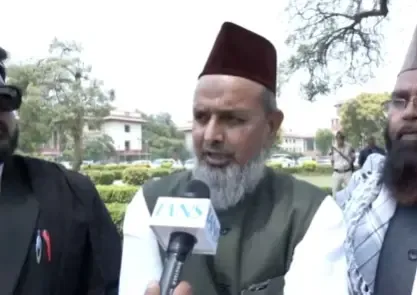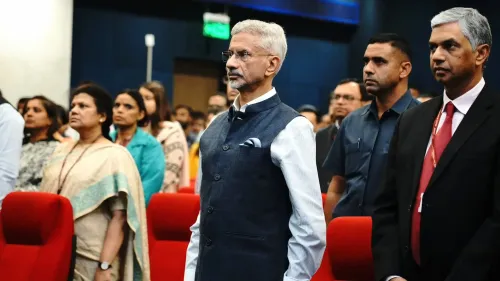Numerous Issues in Waqf Act, We Seek Justice from SC: Maulana Irfan

Synopsis
Key Takeaways
- Petitions against Waqf law heard in Supreme Court.
- Maulana Irfan emphasizes hopes for justice.
- Waqf Bill criticized for irregularities.
- Concerns raised over protest-related violence.
- Supreme Court to review constitutional validity.
New Delhi, April 16 (NationPress) The petitions challenging the newly enacted Waqf legislation were presented before the Supreme Court on Wednesday.
Maulana Irfan, a representative of the All India Jamaat Raza-e-Mustafa, responded to this development by expressing his optimism regarding the Apex Court, stating that they are confident of obtaining justice.
In an interview with IANS, Maulana Irfan mentioned, “Our organization in Bareilly has a legacy of 125 years, and we have submitted a petition against the Waqf Bill. This petition has been acknowledged and is currently under review by the Supreme Court.”
“Numerous irregularities exist within this Waqf framework; many aspects contradict our religious beliefs. We have complete faith in the judiciary that it will deliver justice and address the challenges faced by the minority community,” he added.
Criticizing the government regarding the Waqf law, he stated, “Those advocating for the safeguarding of Waqf assets are in fact attempting to undermine it. They are trying to infiltrate the Waqf through deceptive means. We are confident that the Supreme Court will make its ruling considering the sentiments of the Muslim community.”
Meanwhile, during the hearings related to the Waqf law, the Supreme Court expressed its concerns over the violence occurring during demonstrations.
“It is quite troubling to see the violence that is occurring. Once this matter is in the court’s hands, such incidents should cease,” remarked a bench led by CJI Sanjiv Khanna.
This bench, which also included Justices Sanjay Kumar and KV Viswanathan, scheduled the hearings for the petitions contesting the constitutional validity of the amendments made to the Waqf Act, 1995, for further discussion on April 17 at 2 p.m., including arguments from the Union government regarding an interim order.
The Supreme Court also suggested that it would issue an interim directive ensuring that properties that have already been designated as Waqf by court order or otherwise will not be declassified due to the recent amendment.









